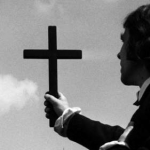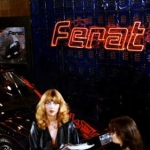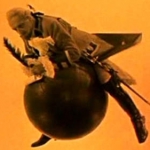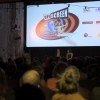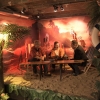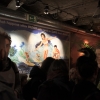Once upon a Time in Czechoslovakia | Offscreen
Once upon a time... there was a country that ceased to exist after a Velvet Revolution, a tiny country of two nations brought together in a socialist utopia, a country with a tradition in film adaptations of folk stories, legends and fairy tales. Initially in the work of animation masters like Jirí Trnka and Karl Zeman, later in live-action films, princesses and fantasy characters were brought to the screen. In “Three Nuts for Cinderella” and “The Cat Who Wore Sunglasses” the fairy tale tradition was given a communist or contemporary makeover. Darker aspects of the fantastic can be found in “The Golden Fern” or the coming-of-age lyricism of “Valerie and Her Week of Wonders”. “Marketa Lazarova” and “Witches' Hammer” on the other hand, are historical parables on authority and terror. Despite an often intriguing ambiguity, these films were not without subtext, especially those produced around the pivotal Prague Spring of 1968. Due to their subliminal critique on the authoritarian government, surrealistic allegories like “Case for a Rookie Hangman” or “Party and the Guests” can be considered as fairy tales for adults.
In collaboration with the Centre tchèque de Bruxelles and the NFA (Národní Filmový Archiv)
![]()
![]()
Witches' Hammer
Based on a series of actual witch trials in the 17th century, this shocking film is gorgeously shot in stark black and white, thus mirroring the moral schism of its characters. Both a genre film and a political fable, its anticlerical message hides a barely veiled critique on the totalitarian regime.
Ferat Vampire
Vampire mythology is taken for a spin by adding themes of technological anxiety and a critique of consumer culture. Like a horsepowered Nosferatu, race car "Ferat" drains the blood of any victim unlucky enough to get behind its steering wheel. A film that's not only profoundly weird but also scary and fun.
Valerie and Her Week of Wonders
The quintessential gem in the canon of Czech surrealism. Valerie dreams a young girl's dream where menacing and lecherous men lurk behind every corner and crave her unspoiled flesh. The spirit of the Poetic avant-garde soars in this predominantly visual world that is all colour and texture and splendour.
Baron Prasil
Karel Zeman's playful virtuosity lends itself perfectly to the classic tale of Baron Munchausen. Making the impossible a reality, the ‘Czech Meliès’ places the actors in wonderfully inventive animated decors and brings the Baron's improbable tales to life like never before. A highlight in Zeman's oeuvre.
- ‹‹
- 2 of 2

